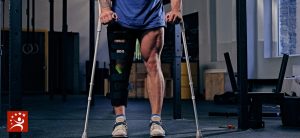Pain of the hip and pelvic area is one of the most frequent types of joint pain seen by orthopedic doctors. Pain in this area can have many causes, and it can be disabling for athletes as well as less active people.
A survey conducted by the Centers for Disease Control and Prevention (CDC) found that about 7 percent of Americans experience some degree of hip pain or stiffness.
How Is My Hip Pain Diagnosed?
Following are some of the tests that are regularly used by orthopedists to determine the specific condition causing pain in the hip and pelvic area:
Initial Exam and Tests
Your doctor will begin by asking about your symptoms, the time they started, and any possible accidents or diseases you might have experienced. Next, your doctor will test your posture and gait, with you in both standing and seated positions. Measurements of your leg bones may also be taken by the doctor.
Imaging Tests
Imaging tests, such as X-rays and MRI, may be the next step your doctor might suggest to determine the cause of your pain. A more specific test called an MRA (magnetic resonance angiogram) uses a contrast dye to look at your hip joints in high detail.
Lab Tests
Orthopedists also use laboratory tests to help determine issues that cause pain and stiffness. A blood test can show, for example, the presence of an antibody that may cause a type of arthritis.
Blood tests can also help find Lyme disease and lupus, both of which may affect your hips. In addition, your doctor may draw a small amount of fluid from your hip joints to confirm a diagnosis of gout or a bacterial infection.
Manual Tests
Special manual tests or maneuvers are also part of the process to determine the cause of your hip or pelvic pain. Over the past several decades, orthopedists have developed more than a dozen of these hands-on tests.
During these mechanical tests, your doctor will ask you to sit, stand, or lie down with your body in different positions, and to make a series of movements. Your doctor will observe your performance during these tests to help in the diagnosis.
These hands-on procedures include the following:
· Pelvic Rocking Test – This is used to check joint stability in the hip. A limited range of motion or pain during this test may suggest an injury or a possible infection.
· Trendelenburg Sign – This test looks for weakness in the abductor muscles of the hips, such as the gluteus. The abductor muscles help draw your legs away from your body in activities such as walking or running.
· Telescoping Test – This test looks for possible hip dislocation, where the head of your upper leg bone (femur) moves out of the socket where it normally sits.
Hip Surgeons in Colorado Springs
If you are experiencing hip and pelvic pain or stiffness, or other issues with your joints or muscles, we are here to help. Our team of physicians at the Colorado Center of Orthopaedic Excellence are experts in sports medicine and joint injuries, and we can evaluate, implement, and monitor the most effective treatments.
For outstanding orthopedic treatment, schedule a consultation by calling our Colorado Springs office today at (719) 623-1050 or request an appointment here. We look forward to helping you live a more pain-free lifestyle so you can get back in the game.







